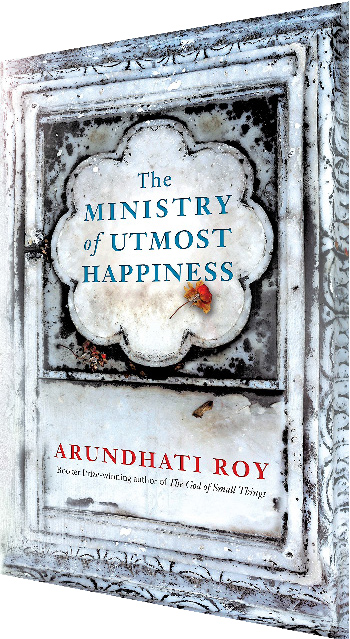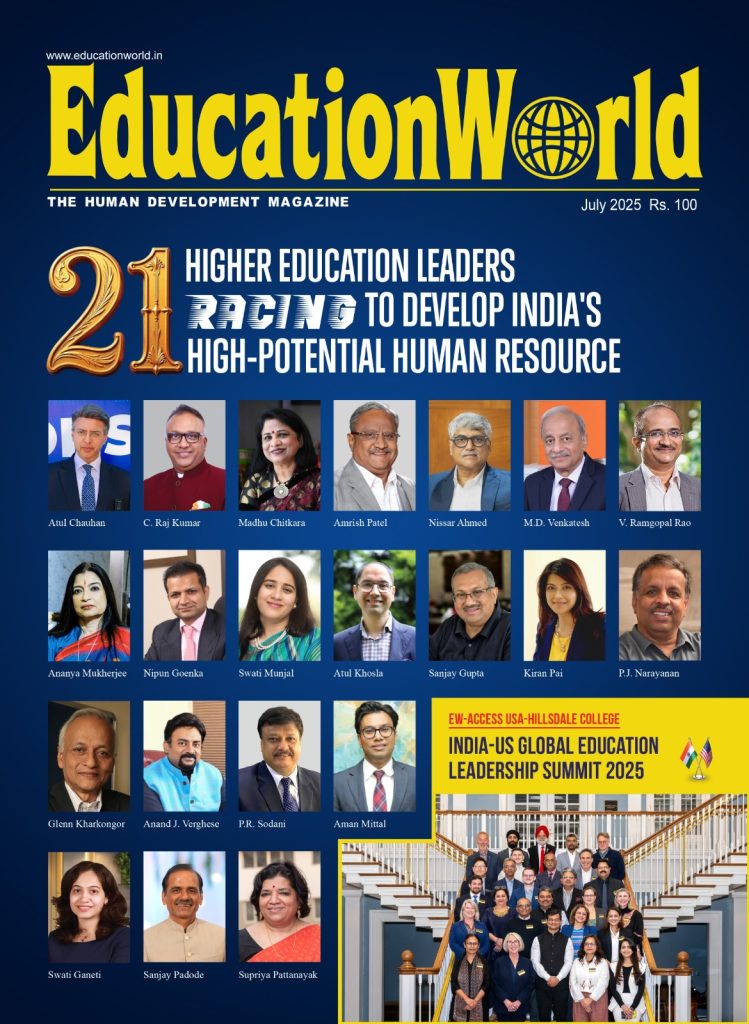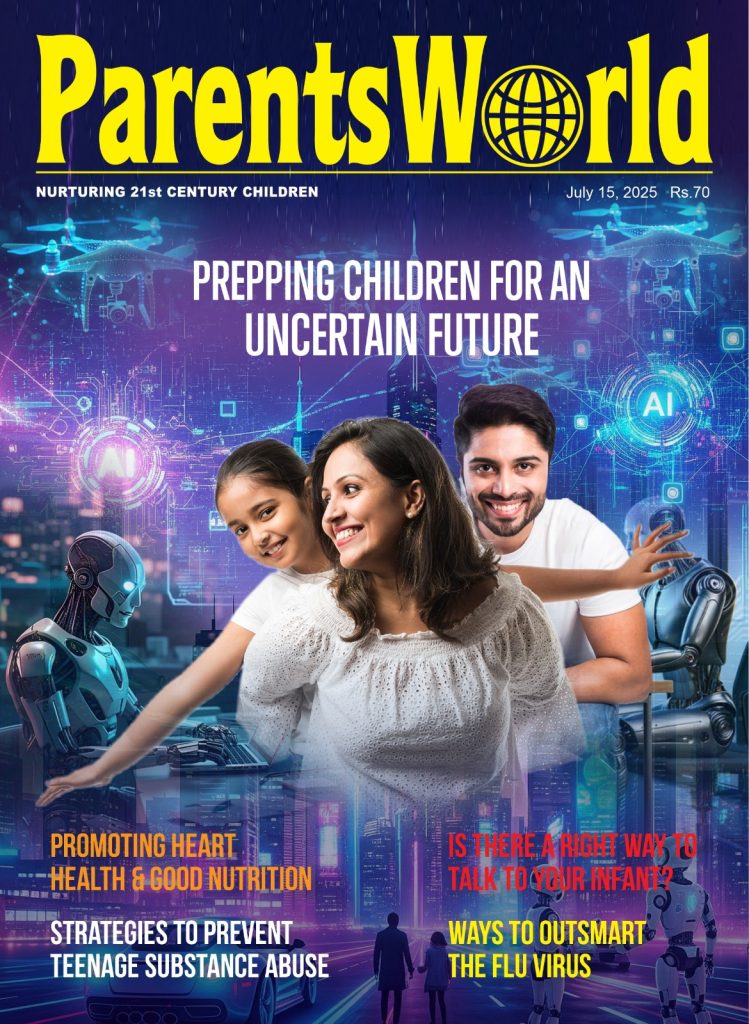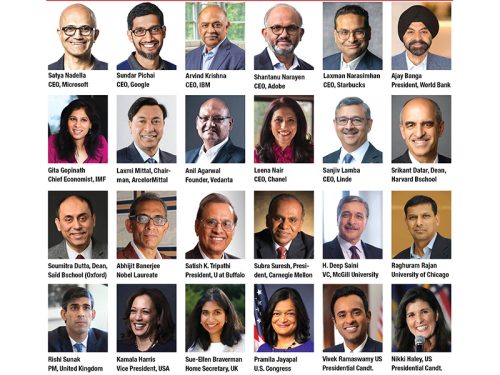The Ministry of Utmost Happiness, Arundhati Roy, Penguin; Rs.599, Pages 445
 In her first novel after the God of Small Things (1997), which won the prestigious Booker Prize to global hosannas, Arundhati Roy, who switched to polemical non-fiction writing after her highly acclaimed debut novel — The Algebra of Infinite Justice (2001), An Ordinary Person’s Guide to Empire (2004), Listening to Grasshoppers (2009), Broken Republic (2011), Walking with the Comrades (2011) — returns to fiction with The Ministry of Utmost Happiness, a tour de force novel with a broad canvas stretched across contemporary Delhi and Kashmir.
In her first novel after the God of Small Things (1997), which won the prestigious Booker Prize to global hosannas, Arundhati Roy, who switched to polemical non-fiction writing after her highly acclaimed debut novel — The Algebra of Infinite Justice (2001), An Ordinary Person’s Guide to Empire (2004), Listening to Grasshoppers (2009), Broken Republic (2011), Walking with the Comrades (2011) — returns to fiction with The Ministry of Utmost Happiness, a tour de force novel with a broad canvas stretched across contemporary Delhi and Kashmir.
Curiously, this novel which highlights two burning issues of the times — gross inequalities of wealth between the elite and the underclass in allegedly socialist India, the unending Kashmir conflict as also the struggle of the rural tribal underclass to retain their lands and modus vivendi — has not attracted much attention in the media or academia. This is perhaps attributable to the revivalist winds of change blowing over the country when even to discuss these issues is to run the risk of being labelled anti-national.
This sprawling narrative of Roy’s accumulated knowledge and experience, is peopled with numerous protagonists starting with Aftab, a transgender child born into the home of Mulaqat Ali, a hakim, and Jehanara Begum who live in the Jama Masjid ghetto of Delhi. While his parents love him regardless, because of the ragging and taunts of his schoolmates, at age 15 Aftab moves into Khwabagh, a colony of transgenders only a few hundred yards from where his/her family had lived for centuries. But Khwabagh is an altogether different universe in which she (renamed Anjum) is appreciated for who she is and transformed into Delhi’s most famous hijra.
The thread which binds the thicket of detail in the book is the atrocities and iniquity that the Indian State visits on the poor and marginalised minorities, particularly the Muslim minority of the country, going well beyond the sin of omission. Having done precious little to enable and empower them, it won’t even let them get on with their difficult lives. Even as Anjum and Zainab — an abandoned new born whom she has literally picked off the street — are beginning to enjoy a measure of happiness in their squalid ghetto, the State intervenes with ruthless cruelty.
While invited as transgenders often are, to perform at a wealthy man’s wedding, the revelry is rudely disrupted by the police and Anjum & Co are beaten up and made to run all the way home in pouring rain after Arif, their driver, has his knuckles and kneecaps smashed. This incident happens in 1976, at the height of the Emergency when Sanjay Gandhi’s goons visited a reign of terror on the population to enforce his diktat of forced sterilisation of poor males, mostly Muslims.
Again in 2002 when Anjum is on a religious pilgrimage to Ajmer with Zakir Mian, an aged flower-seller of their slum, the duo fatally presses on to Ahmedabad, where they plunge headlong into the riotous mobs that ran amok through the city during the Gujarat riots of that year. Zakir Mian is killed and Anjum is traced at a refugee camp by Zakir Mian’s son who comes looking for him. Writing from her own perspective, rather than Anjum’s, Roy gives a chilling two-page no-words-minced account of the carnage in Gujarat.
The murders by a Hindu mob in Gujarat unhinges Anjum who leaves her home and Zainab and sets up house in a Muslim graveyard in Delhi. Soon after, when this small transgender community’s decades old slum is cleared by the Delhi municipal corporation’s civic cleanliness drive, the scene shifts to a complex theatre of action — Kashmir, to which Anjum is spirited away by Saddam Hussein, a can-do saviour of the slum dwellers. But not before she adopts another abandoned baby from the pavement.
The migration of Anjum and a few of the Khwabagh hijra community to Kashmir, provides the author an opportunity to highlight the atrocities committed by the Indian State against the Muslim majority of the Valley through the eyes and intricate experiences of Tilotamma, an enigmatic, sorrowful and well-educated woman — who, going by the description is the author herself — and henceforth the prime protagonist of this long-winding, and somewhat confusing novel.
While in Srinagar the evil eye of Amrik Singh, a take-no-prisoners-type top cop, clearly modelled on the late K.P.S. Gill who quelled the Khalistan movement in Punjab, fixes its baleful stare on Tillo. How Tillo is saved by her ex-husband who is above Amrik Singh in the police/army hierarchy and her subsequent involvement with Gulrez, a heroic, Scarlet Pimpernel-style leader of the Kashmir azadi movement is detailed in the latter half of this lengthy novel. Nevertheless, MUH has the virtue of narrating the long-duration Kashmir uprising from the seldom depicted Kashmiri perspective.
This is a thought-provoking book which graphically portrays the violence of the Indian State against the poor within national boundaries (slum-dwellers and migrant workers) and in Kashmir where the State has clearly reneged on its commitment to a free and fair plebiscite under UN supervision. That the status of Kashmir is unresolved 70 years after independence is a telling commentary on the ineptitude of free India’s politicians and diplomats.
There is a clear connection between the appalling cruelty of the State towards the poor and disenfranchised, denied real education, who crowd into the country’s cities, and the struggle of Kashmiris for azadi. The high police/paramilitary and defence expenditure this situation necessitates eats into social sector spending.
Therefore, unless the plebiscite promise is redeemed in the Kashmir Valley (and the long-standing China border dispute is resolved) in a spirit of give and take, India’s defence expenditure will never reduce. It’s unsurprising that Roy’s second novel didn’t even make the Booker shortlist. But it’s to her credit that she makes this connection.
Dilip Thakore
Charming children’s tale
The Wild Pack, Andre Marx & Boris Pfeiffer Illustrated by Sebastian Meyer, Penguin; Rs.250, Pages 122
 Hamlet the young wolf at the city Zoo has adapted to the routine life, being fed by the zoo keeper Knut, the crowds of visitors and the open skies covering his cage. His only joy is his best friend and mountain of fur — Barnabas the gorilla.
Hamlet the young wolf at the city Zoo has adapted to the routine life, being fed by the zoo keeper Knut, the crowds of visitors and the open skies covering his cage. His only joy is his best friend and mountain of fur — Barnabas the gorilla.
Hamlet’s peace is suddenly shaken when he smells greed emanating from zoo director Mueller who fancies Hamlet’s fur for his daughter’s 16th birthday present. Hamlet must do something but is anything possible? Mueller has a reputation of being cold towards animals and has already killed a polar bear and a tiger as gifts for his other two daughters.
Hamlet is resigned to being the fur hanging on Mueller’s wall the next day. But Barnabas, even though having been uprooted from Africa and imprisoned in the zoo, is spirited. He makes a plan to outwit Mueller and advises Hamlet to go live with the Wild Pack, a group of animals who live secretly — away from humans in the city. Barnabas shows Hamlet that this is not only about escaping the zoo, it is about freedom like in the wild. Barnabas succeeds in outwitting Mueller with gummy bears, a golden watch and play darts. Hamlet escapes and promises to free his best friend.
Hamlet searches for the Wild Pack running through the city in anguish, dodging cars and humans. Once again, as he is about to give up hope, a humming bird named Spy who doesn’t miss a chance to elocute poetry, shows him the way. But when he does meet the pack in the underground den called Paradise Place, Hamlet feels unwelcome. He is shocked and would rather have died. Is this freedom? Paradise Place is a rail tunnel, abandoned by humans; bare, dim lit and smelly. Each one in the Wild Pack seems so scattered, surviving on food leftover by humans. The only thing binding them is the one rule that no one eats another in the pack.
With Spy’s help Hamlet lets Barnabas know he is safe, only to learn that Mueller is desperate for fur and is set to target his best friend! Hamlet shrugs off his lonely broken heart and sets about saving Barnabas even if he has to go it alone. It turns out to be a chase between him and Mueller. Just when all seems lost, the rest of the Wild Pack see sense in uniting. So, Spy, Spotlight the chameleon, Sheba the panther, Coca and Too a cockatoo couple and Tulip the skunk led by Hamlet form the Free Barney Squad. While Mueller is held captive by an anaconda named Rafina in the labyrinth, the Squad saves Barnabas with great wit, strength and most important, unitedly.
The story ends with the Squad and Barnabas atop a building, free from humans and their leftovers. They experience freedom under open skies breathing fresh air. The story is a charming rendition of freedom, as experienced through these lovable creatures. It reminds one how adversity can bring out the best within individuals, if hope and optimism is not lost. The Wild Pack is a reminder to children of the importance of friendship, trust and faith.
Smriti Gupta (The Book Review, November 2017)














Add comment